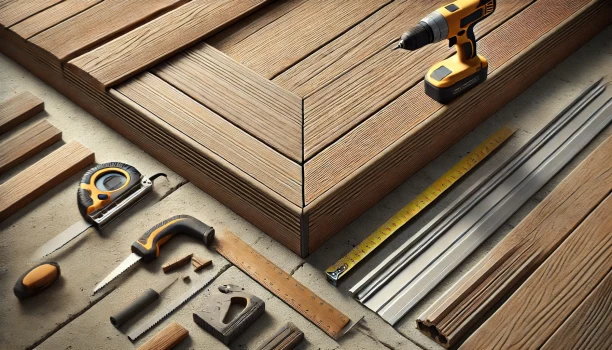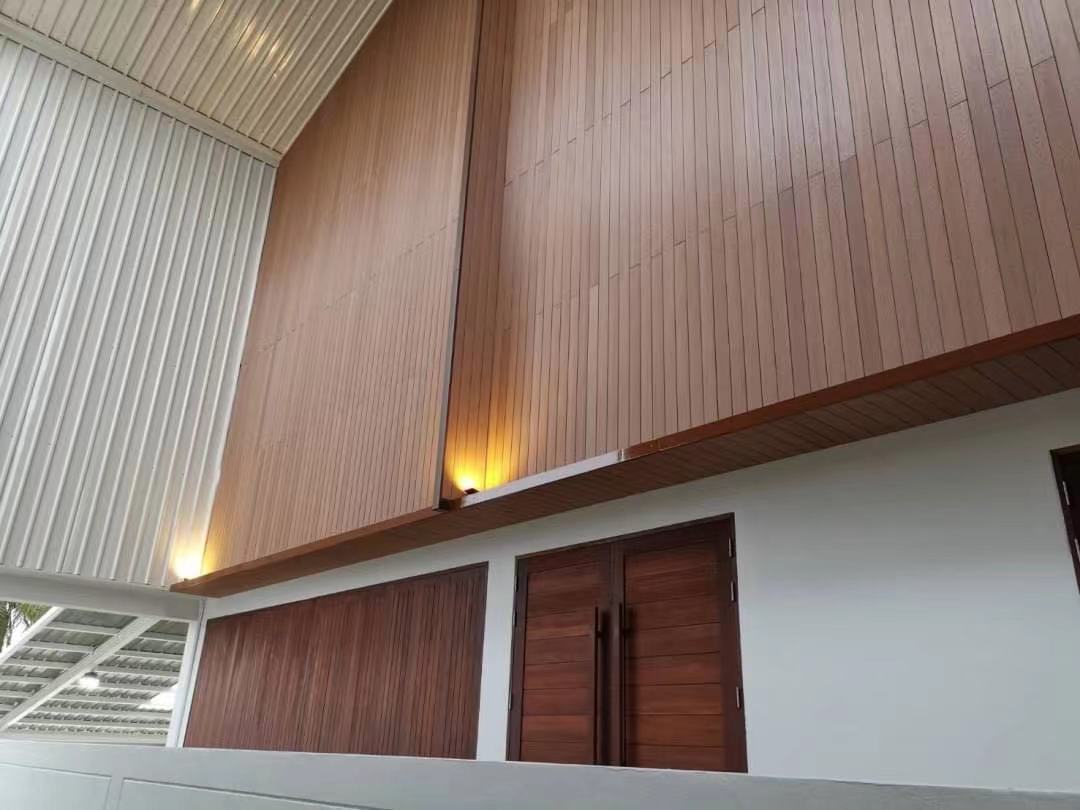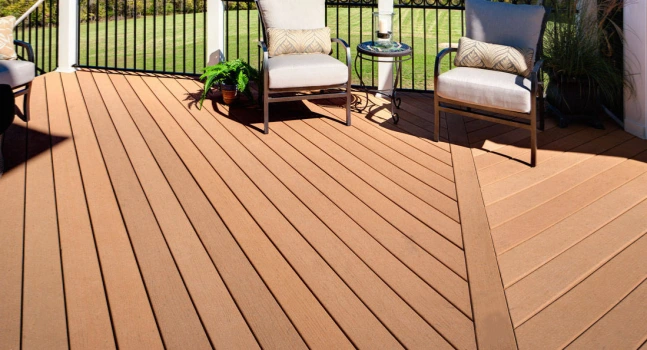Composite Decking vs. Wood: What Every Wholesaler Should Know
In the decking market, traditional wood and modern composite decking are the two main contenders at the moment. As a wholesaler, it's important to understand the products, especially in the context of a rapidly growing flooring industry. Timber has classic appeal, but laminate flooring is gaining attention for its durability and low maintenance. So, which is better?
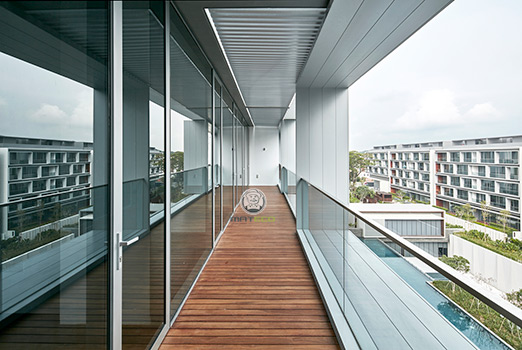
gap decking boards
1. What Is Composite Decking?
Composite decking is a modern alternative to traditional wood decking. This material is made primarily from a blend of recycled plastics and wood fibers that have the appearance of wood, but without the inherent disadvantages of wood. The manufacturing process involves mixing these components and then molding them into sheets using high-pressure molding or extrusion. The result? Durable, weather-resistant lumber that stands the test of time.
2. How Composite Decking Stands Up Against Wood
Components of composite decking
Composite decking is designed to be resilient. This material is a blend of recycled plastic and wood fibers designed to mimic the aesthetics of wood without the natural fragility of wood. The combination of these materials makes the deck strong and durable, able to resist the common problems that plague wood decks.
Resistant to Environmental Stress
One of the most commendable features of composite decking is its resistance to environmental stress. Unlike wood, it is not susceptible to moisture, which means it won't rot, warp, or swell. Additionally, UV rays can fade and weaken wood over time, but have less of an effect on composite materials. This resistance ensures that the deck's vibrant colors and structural integrity remain intact for years.
Resistance to Pests
Wood is a natural material that is often infested with insects, especially termites and carpenter ants. These pests can damage the structural integrity of wood decks over time. In contrast, composite decking's blend of materials is unattractive to these critters, ensuring that the deck is intact and safe.
The Longevity Factor
While a well-maintained wood deck can last approximately 10-15 years, composite decking lasts well beyond that timeframe. With minimal maintenance, homeowners and businesses can expect their composite decking to stay in top shape for 25-30 years or more. This long life means fewer replacements and repairs, providing better value in the long run.
3. Initial Investment vs. Long-Term Value of Composite Decking
While the upfront cost of composite decking may be higher than that of wood, the long-term savings are obvious. Considering regular maintenance, staining, and the potential replacement cost of wood, you'll find that composite decking typically offers a better value over time.
4. Composite Decking vs. Traditional Wood Upkeep
Deck maintenance is a critical aspect for both homeowners and businesses. The amount of maintenance required can significantly influence the choice between composite decking and traditional lumber. Both materials have their advantages, but when it comes to maintenance, the differences are very noticeable.
Maintenance Requirements for Wood Decks
Traditional wood decks, while beautiful and natural, require a range of maintenance that can be both time-consuming and expensive. Wood is susceptible to natural elements. Rain, snow and even moisture can cause wood to warp, crack or rot over time. To combat this problem, wood decks need to be sealed and stained regularly to maintain their appearance and structural integrity. This means that homeowners need to invest time and money almost every year to ensure that their wood decks remain in good condition.
In addition to environmental wear and tear, wood decks are also susceptible to insect infestations. Termites, carpenter ants, and other wood-boring insects can cause serious damage, often requiring replacement of portions of the deck.
The Low-Maintenance Appeal of Composite Decking
In stark contrast, composite decking is a low-maintenance alternative. It is made from a blend of wood fibers and plastic designed to resist many of the problems that plague wood decks. There is no need for annual staining or sealing. Instead, a simple wash with soap and water will keep composite decks looking pristine. The material is also fade-resistant, ensuring that the deck will retain its color for years to come.
Can I Spray Paint Composite Decking?
A common question is whether or not composite decking can be painted. The answer is yes, but it is usually not recommended. Composite decking is designed to maintain its color and prevent fading. MATECO WPC decking is guaranteed against fading for 10 years and does not require painting. If you want to change the color or update the look, it's best to consult with the manufacturer or a professional first. Also, if you decide to proceed, make sure you use high-quality paints and primers that are appropriate for the composite material.
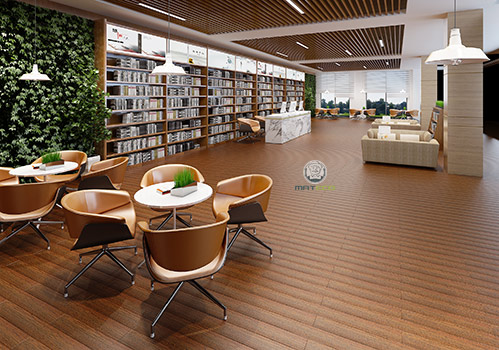
5. The Sustainability of Composite Decking Materials
Composite decking has an edge when it comes to sustainability. Many brands use recycled materials, reducing landfill waste. Moreover, the long lifespan of composite decks means less frequent replacements, leading to reduced resource consumption compared to wood.
6. Modern Looks with Composite Decking vs. Classic Wood
While wood offers a timeless, natural beauty, composite decking brings versatility in design. Available in a range of colors and finishes, it allows wholesalers to cater to diverse aesthetic preferences, from rustic to contemporary.
7. Slip Resistance and Fire Ratings of Composite Decking
Safety is paramount, especially in outdoor settings. Composite decking often has better slip resistance than wood, especially when wet. Additionally, it's generally more resistant to fire, giving homeowners peace of mind.
8. The Ease of Laying Down Composite vs. Wood Planks
Composite decking boards are designed for straightforward installation. With uniform sizes and no need to account for defects like knots, as in wood, the installation process can be quicker and more efficient.
9. The Growing Demand for Composite Decking Among Builders and Contractors
The shift towards sustainable, low-maintenance solutions has made composite decking increasingly popular among builders and contractors. As a wholesaler, understanding this trend can help in inventory decisions and marketing strategies.
If you are looking for a WPC manufacturer, MATECO WPC will be your best choice.
WhatsApp: +86-13380085620
Email: info@matecowpc.com




